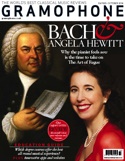Texte paru dans: / Appeared in:
*

GRAMOPHONE (10/2014)
Pour s'abonner /
Subscription information
Resonus Classics
RES10132

Consultez toutes les évaluations recensées pour ce cd
~~~~ Reach all the evaluations located for this CD
Reviewer:
David Vickers
‘Tickle the minikin’ is 16th-century slang for playing the highest string of a viol, like a pub pianist ‘tinkles the ivories’. The repertoire is 17th-century music from Holland and England for the lyra viol, a multi-stringed instrument descended from the Italian lirone, capable of playing chords, and which was played by Samuel Pepys. Robert Smith uses a seven-string viola da gamba, with its lowest string removed, explaining that he has ‘to a certain extent chosen convenience over authenticity’; but abundant integrity has gone into this beautifully engineered recording and the digital booklet provides a link to his specialist article.
Smith employs eight different scordatura tunings to reap the benefit of different techniques and open-string resonances in 35 short pieces, all drawn from original tablature sources in a book preserved in Manchester and an enigmatic manuscript of unclear origins in the British Library. He exposits that the latter might have belonged to the Dutch musician Dietrich Steffkins. Smith produces an endearing imitation of bells in a Carillon by Thomas
Mace and applies some tastefully
executed plucking with the thumb contrasted with finely balanced bowed chords in
an anonymous Thumping Almaine. In a couple of folky pieces Smith uses an
extraordinary ‘Lancashire pipes tuning’ which uses crossed strings to produce a
bagpipe drone.
Fermer la fenêtre/Close window
Cliquez l'un ou l'autre
bouton pour découvrir bien d'autres critiques de CD
Click either button for many other reviews


